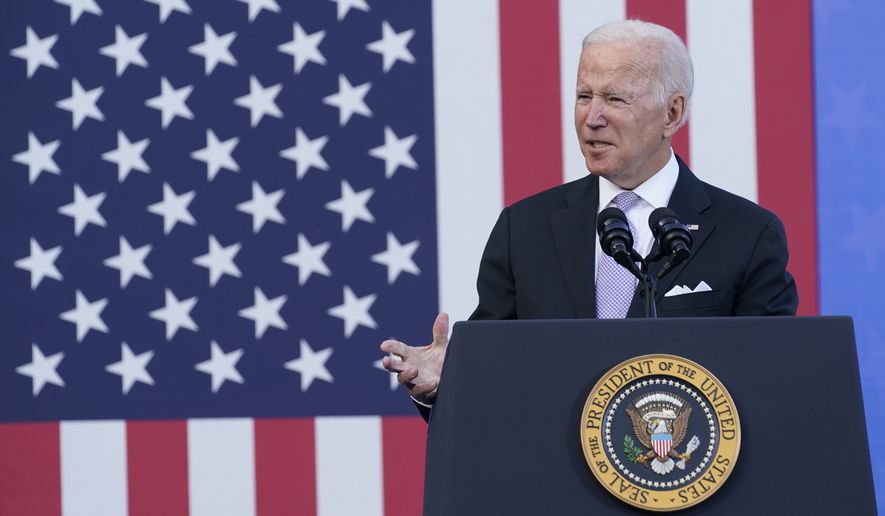Twenty-one vulnerable House Democrats urged President Biden on Wednesday to scrap a proposal to give the IRS information on bank accounts with more than $10,000 in annual deposits.
The lawmakers told House Speaker Nancy Pelosi in a letter that they could not support the proposal after hearing from “hundreds of thousands of constituents” who fear “the data that would be turned over to the IRS is overly broad and raises significant privacy concerns.”
“Americans expect their bank or credit union to safeguard their financial information,” the 21 Democrats wrote. “This proposal would erode trust in financial services providers.”
Signatories of the letter included leading moderate Democrats, like Rep. Josh Gottheimer of New Jersey and Henry Cuellar of Texas.
A larger portion of signatories, including Reps. Chris Pappas of New Hampshire and Cindy Axne of Iowa, also represent districts considered prime pick-up opportunities for Republicans in next year’s midterms.
“While I certainly think we need to be looking at ways to crack down on wealthy tax dodgers, I oppose implementing something that could scoop up middle-class Iowa families and create massive amounts of red tape for our small community banks and lenders,” Ms. Axne said. “We need to ensure the top 1% are paying their taxes, but this proposal goes too far.”
Given the narrow majority Mrs. Pelosi holds in the House, which can only afford three defections, and widespread GOP opposition, the IRS reporting requirement is dead without the support of lawmakers like Ms. Axne.
The letter came after the National Republican Congressional Committee launched a new ad targeting 15 House Democrats on the topic Wednesday.
The ads excoriate Democrats for wanting to “hire an army of IRS agents” to keep tabs on how average Americans spend their hard-earned money.
Initially, Mr. Biden sought new regulations requiring banks to report annually on the “inflows and outflows” of personal and business accounts with more than $600 in transactions annually. After significant pushback, Democrats raised the threshold to $10,000 and created exemptions for wages.
The compromise has done little to mollify critics, however.
Republicans say the proposal amounts to a massive expansion of federal power, comparable to that of a “surveillance state.” They also note that the exemption covers only deposits and does not include how the money is ultimately spent.
Voters seem to agree as well.
Mike Berg, a spokesman for the NRCC, said the IRS “spying issue” was the “best testing message against” Mr. Biden’s spending bill.
Overall, 70% of battleground voters were less likely to back the measure once learning about the new IRS provisions.
Sen. Joe Manchin III, a key swing vote for the White House‘s legislative agenda, told the Economic Club of Washington, D.C., earlier this week that he had personally raised his objections on the topic with Mr. Biden.
“The president and I had this conversation. I said … ‘Do you understand how messed up that is to think that Uncle Sam’s going to be watching transactions … this cannot happen, it’s screwed up,’” said Mr. Manchin, West Virginia Democrat. “So I think that one’s going to be gone.”
• Haris Alic can be reached at halic@washingtontimes.com.
• Kery Murakami can be reached at kmurakami@washingtontimes.com.




Please read our comment policy before commenting.